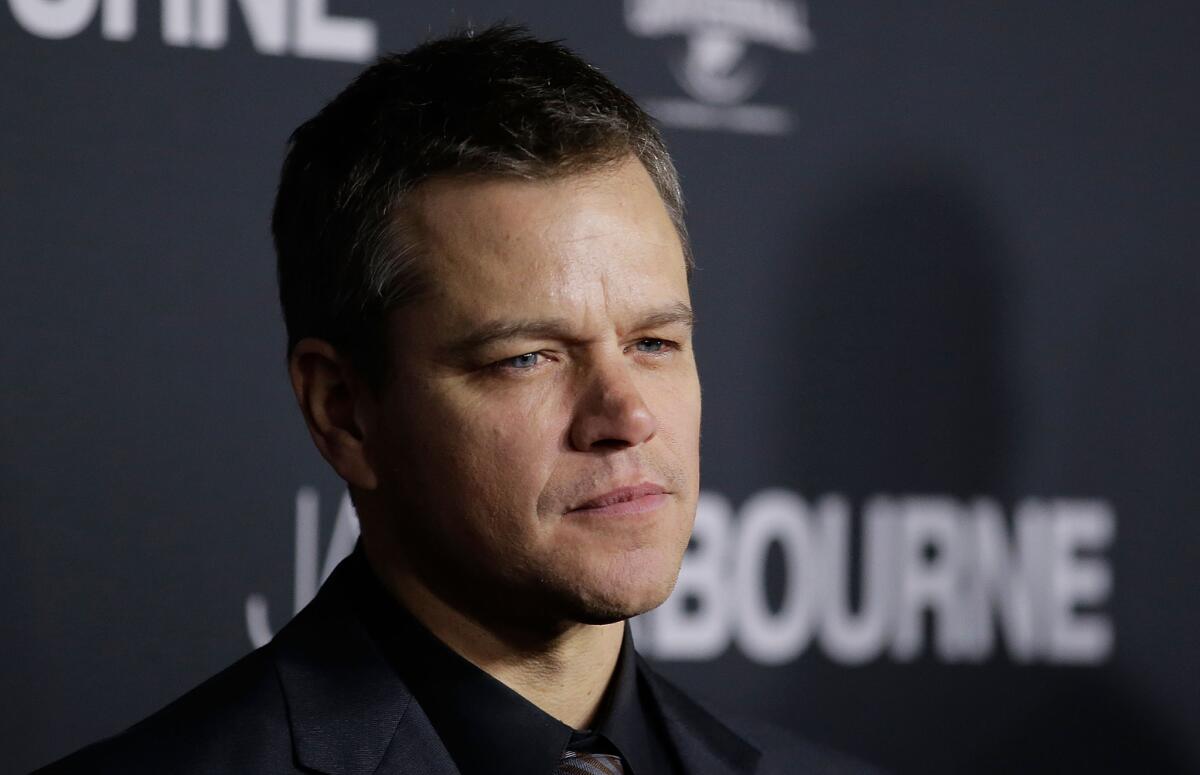Selling secrets to the Russians? Jason Bourne fan arrested in spy drama of his own

Gregory Allen Justice had a sick wife, a job at which he felt unappreciated and a fascination with cinematic secret operatives such as Jason Bourne and James Bond. He had a special love for “The Americans,” the FX series about KGB spies in the United States.
As an engineer on the night shift at a large defense contractor, Justice, 49, of Culver City had access to sensitive technical data about military and commercial satellites, according to federal authorities. He was arrested Thursday on charges that he sold information to a man he believed was an agent of Russian intelligence.
He told the supposed spy — who was really an undercover FBI agent — that he needed money to pay his wife’s mounting medical bills, according to an FBI affidavit. But he sent thousands of dollars — including much of what he got from the FBI — to a mysterious woman in a Long Beach apartment who entreated him for cash and gifts, said the affidavit, which identified her as “C.M.”
From December 2015 to May 2016, the FBI said, Justice sent C.M. more than $21,000 in FedEx envelopes, and over the past year and a half, sent her gifts that included a Dyson fan, a Vizio television, a purse, a blanket and another TV, as well as money for a $900 iPhone, the FBI said.
Now being held without bail in federal custody, Justice could face 15 years in prison if convicted on a charge of economic espionage, plus 20 years on charges of violating the Arms Export Control Act, the government said.
“It’s like getting punched in the stomach,” his father, William Justice, said of the arrest. “He’s a good kid. … I’ve never known him to do anything that was inappropriate.”
Reached by phone in Redding, he said his son’s wife had a variety of health problems, including diabetes and chronic accident-related back pain.
“I think it will look a little different when the facts come out,” he said of the case, but he said he knew few of the details.
The government did not name the defense contractor, but Justice’s father said his son worked for Boeing Satellite Systems in El Segundo.
NEWSLETTER: Get essential California headlines delivered daily »
Gregory Justice had worked for the contractor since 2000, according to the FBI affidavit, and began meeting with the undercover FBI agent in February.
It is not clear exactly how Justice first came to the FBI’s attention. But in January, the FBI said, a court-authorized search of his car turned up handwritten notes bearing the addresses of the Russian embassy in Washington, D.C., and the Russian consulate in San Francisco.
At his first meeting with Justice at a Los Angeles coffee shop, authorities said, the FBI agent told him, “You’re very, very important to the Russians. I know you said you want a relationship, yes, and I was curious in what you want, expect.”
Justice portrayed himself as desperate to pay down his sick wife’s mounting medical bills, according to the FBI.
Over the course of five meetings, the affidavit said, Justice gave the agent USB thumb drives with satellite information in exchange for payments of cash, in stacks of $500 or $1,000 bills.
He used the fake name “Brian,” the FBI said, and it was not until the end of their final meeting in May that he revealed his real name to the agent as Greg, the FBI said.
In more than one meeting with the agent, the FBI said, Justice mentioned that he loved “The Americans,” the TV drama centering on a pair of Russian spies posing as a suburban American couple.
In February, a surreptitious recording of Justice in his car captured him expressing frustration with his inability to get promoted. “I’m going to stop trying,” he said, according to the FBI. “Why put out the effort if there’s not going to be any reward? I’m tired and I’m done. … What I can’t do is keep putting myself out, without being rewarded for it.”
Justice’s resume said he studied mechanical engineering at Cal Poly Pomona, the FBI said.
“Our nation’s security depends on the honesty and integrity of those entrusted with our technological secrets,” Eileen M. Decker, U.S. attorney for California’s Central District, said in a statement Friday.
“In this case, the defendant sought to undermine our national security by attempting to sell proprietary and controlled information about satellites to a foreign government’s intelligence service,” she said. “Fortunately, law enforcement agents were able to timely and effectively intervene to protect this critical technology.”
Twitter: @LATChrisGoffard
MORE LOCAL NEWS
Metrolink approves $1.5 million to repair defective cab cars
Mega Millions finally has a $540 million winner — but not in California
Armored car guard shot in Sacramento credit union robbery
More to Read
Sign up for Essential California
The most important California stories and recommendations in your inbox every morning.
You may occasionally receive promotional content from the Los Angeles Times.











